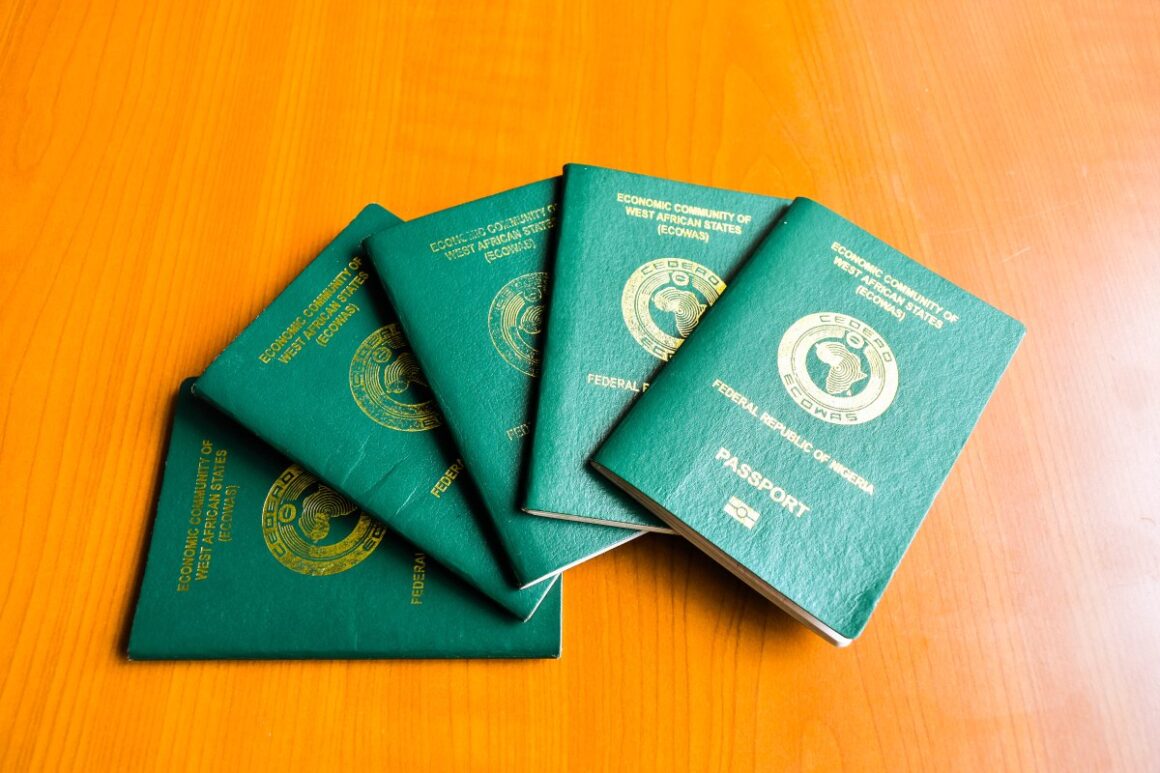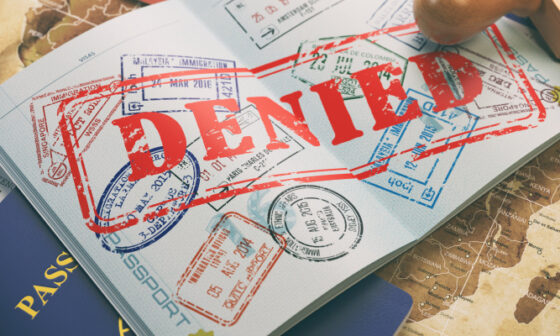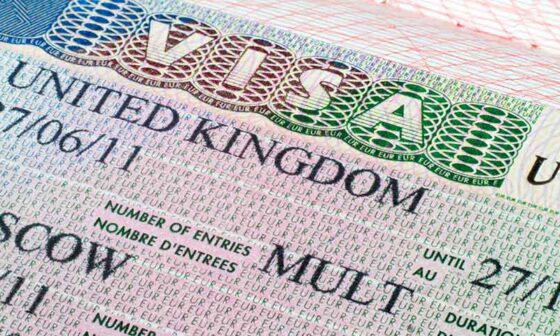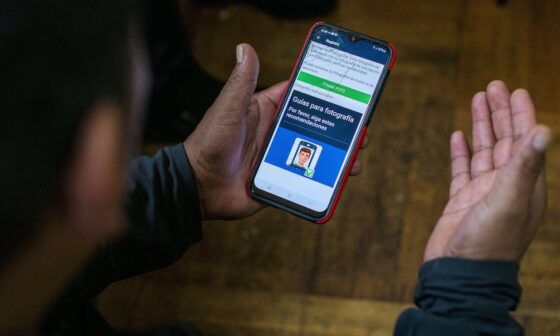Imagine the freedom of exploring vibrant cultures, stunning landscapes, and bustling markets without the hassle of applying for a visa. As someone holding an ECOWAS passport, you have the privilege of travelling visa-free to some incredible countries within the Economic Community of West African States. It’s an opportunity to discover our shared history, connect with fellow citizens of West Africa, and experience the beauty of regional unity firsthand. Whether you’re a student, a businessperson, or an adventurer at heart, this guide will teach you how to maximize your ECOWAS passport and unlock the potential of visa-free travel throughout these countries.
What Is an ECOWAS Passport?
The ECOWAS passport is a travel document issued by member countries of the Economic Community of West African States (ECOWAS). It grants visa-free travel and residency rights to citizens of the 15 member states within the region. This initiative was introduced to promote regional integration and ease of movement for citizens.
Visa-Free Countries for ECOWAS Passport Holders
As an ECOWAS passport holder, you can travel visa-free to the following 15 member countries:
- Benin
- Burkina Faso
- Cape Verde
- Côte d’Ivoire
- Gambia
- Ghana
- Guinea
- Guinea-Bissau
- Liberia
- Mali
- Niger
- Nigeria
- Senegal
- Sierra Leone
- Togo
Here’s a detailed look at the unique attractions, traditions, and economic opportunities in each ECOWAS member country:
#1. Ghana
- Attractions:
- Cape Coast Castle: A UNESCO World Heritage site and a poignant reminder of the transatlantic slave trade.
- Kakum National Park: Famous for its canopy walkway and lush rainforest.
- Labadi Beach: A popular destination for relaxation and live music.
- Traditions:
- Celebrations like Homowo Festival in Ga communities, mark the harvest season.
- Traditional kente weaving, showcases intricate patterns and vibrant colours.
- Economic Opportunities:
- A booming real estate market in Accra.
- Opportunities in cocoa farming and gold mining, which are key exports.
#2. Senegal
- Attractions:
- Gorée Island: Known for its role in the slave trade and the House of Slaves Museum.
- Pink Lake (Lac Rose): A stunning natural wonder known for its high salt content and pink hue.
- Dakar’s Nightlife: Vibrant with live music, clubs, and cultural festivals like the Dakar Biennale.
- Traditions:
- Wrestling (Laamb): The national sport, deeply rooted in Senegalese culture.
- Sabar Drumming: A traditional form of music and dance.
- Economic Opportunities:
- Fisheries and agriculture dominate the local economy.
- Dakar is a hub for international trade and financial services.
#3. Cape Verde
- Attractions:
- Sal Island Beaches: Perfect for water sports like windsurfing and scuba diving.
- Fogo Volcano: Offers hiking trails and stunning views of volcanic landscapes.
- Mindelo: A cultural hub known for its music festivals and colonial architecture.
- Traditions:
- Morna Music: A soulful genre made famous by Cesária Évora.
- Carnival of Mindelo: A vibrant event showcasing Cape Verdean culture.
- Economic Opportunities:
- Growing tourism industry with investment opportunities in eco-tourism.
- Renewable energy projects, particularly in wind and solar power.
#4. Nigeria
- Attractions:
- Olumo Rock: A historical site in Abeokuta with panoramic views and caves.
- Yankari National Park: Known for its wildlife and warm springs.
- Lekki Conservation Centre: Offers a serene escape with Africa’s longest canopy walk.
- Traditions:
- Durbar Festival: Celebrates Islamic culture with grand horse parades in northern Nigeria.
- Yoruba, Igbo, and Hausa cultures bring diverse languages, cuisines, and music.
- Economic Opportunities:
- Africa’s largest economy with thriving oil, tech, and creative industries.
#5. Côte d’Ivoire (Ivory Coast)
- Attractions:
- Basilica of Our Lady of Peace: The largest church in the world, located in Yamoussoukro.
- Banco National Park: A lush rainforest within Abidjan.
- Grand-Bassam: A colonial town and UNESCO World Heritage site.
- Traditions:
- Mask Festivals: Highlight the spiritual and artistic traditions of local communities.
- Popular dishes like attiéké (cassava couscous) and aloco (fried plantains).
- Economic Opportunities:
- Cocoa and coffee industries are major contributors to the economy.
- Emerging sectors include renewable energy and urban infrastructure.
#6. Benin
- Attractions:
- Royal Palaces of Abomey: A UNESCO World Heritage site showcasing Dahomey Kingdom history.
- Ganvié: A stilt village often referred to as the “Venice of Africa.”
- Pendjari National Park: Home to elephants, lions, and other wildlife.
- Traditions:
- Voodoo festivals and ceremonies, integral to Beninese culture.
- Traditional handwoven fabrics and crafts.
- Economic Opportunities:
- Cotton farming and export.
- Opportunities in ecotourism and cultural tourism.
#7. Togo
- Attractions:
- Koutammakou: A UNESCO site featuring traditional Batammariba mud towers.
- Lomé Market: A bustling hub for local goods, fabrics, and crafts.
- Togo’s Beaches: Unspoiled coastlines ideal for relaxation.
- Traditions:
- Traditional dances and storytelling during festivals.
- Unique bead-making techniques for jewellery.
- Economic Opportunities:
- Phosphate mining and export.
- Small-scale agribusiness ventures.
#8. Gambia
- Attractions:
- River Gambia National Park: Famous for its chimpanzee rehabilitation program.
- Kunta Kinteh Island: A historical site tied to the transatlantic slave trade.
- Sanyang Beach: A serene and picturesque coastline.
- Traditions:
- Kora music, featuring the 21-stringed West African harp.
- Intricate tie-dye fabrics and batik art.
- Economic Opportunities:
- Tourism centred around eco-lodges and cultural tours.
- Groundnut farming as a staple of the economy.
#9. Mali
- Attractions:
- Timbuktu: A historical city of ancient manuscripts and Islamic scholarship.
- Djenné Mosque: The largest mud-brick building in the world.
- Niger River: Vital for transportation and a scenic destination.
- Traditions:
- Griot storytelling, preserving history through oral traditions.
- Traditional Tuareg jewelry and crafts.
- Economic Opportunities:
- Gold mining and agriculture.
- Investments in renewable energy and irrigation projects.
#10. Guinea
- Attractions:
- Mount Nimba: A UNESCO World Heritage site with unique flora and fauna.
- Conakry Grand Mosque: One of the largest mosques in West Africa.
- Cape Verga: A coastal paradise with pristine beaches.
- Traditions:
- Traditional drumming and dancing during festivals.
- Vibrant markets featuring handmade crafts.
- Economic Opportunities:
- Bauxite mining and export.
- Investments in hydropower projects.
#11. Guinea-Bissau
- Attractions:
- Bijagós Archipelago: A group of islands rich in biodiversity.
- Bolama Island: A former colonial capital with historical architecture.
- Orango Island National Park: Known for its saltwater hippos.
- Traditions:
- Ceremonial dances and unique tribal customs.
- Local seafood dishes and palm wine.
- Economic Opportunities:
- Cashew farming and export.
- Sustainable fishing practices.
#12. Liberia
- Attractions:
- Providence Island: The landing spot of freed American slaves.
- Sapo National Park: A haven for wildlife and adventure tourism.
- Robertsport: A surfer’s paradise with uncrowded beaches.
- Traditions:
- Traditional masked dances like the Poro and Sande.
- Handmade woven textiles and carvings.
- Economic Opportunities:
- Rubber plantations and export.
- Small-scale agriculture and timber.
#13. Niger
- Attractions:
- Agadez Mosque: A historic mud-brick mosque symbolizing Sahelian architecture.
- Sahara Desert: Experience camel treks and visit the Tenere Tree site.
- W National Park: Part of the UNESCO World Heritage complex shared with Burkina Faso and Benin, rich in biodiversity.
- Traditions:
- Nomadic Tuareg culture, celebrated through their jewelry and traditional attire.
- Traditional storytelling and music performances during cultural festivals.
- Economic Opportunities:
- Uranium mining as a key economic driver.
- Opportunities in renewable energy, particularly solar power.
#14. Sierra Leone
- Attractions:
- Tacugama Chimpanzee Sanctuary: A conservation project near Freetown.
- Banana Island: A tropical paradise for diving and exploring.
- Freetown Cotton Tree: A historic and symbolic site in the heart of Freetown.
- Traditions:
- Traditional Krio culture and storytelling.
- Intricate woven textiles and handcrafted jewellery.
- Economic Opportunities:
- Mining of diamonds, gold, and bauxite.
- Investments in agriculture, especially rice farming and fisheries.
#15. Burkina Faso
- Attractions:
- Sindou Peaks: Dramatic rock formations ideal for hiking and photography.
- Nazinga Game Ranch: A haven for elephants and other wildlife.
- Ouagadougou’s Art Market: Known for high-quality crafts and textiles.
- Traditions:
- Unique mask festivals showcasing the artistry and spirituality of local tribes.
- Celebrations of traditional African music through instruments like balafons.
- Economic Opportunities:
- Cotton farming and textiles as major industries.
- Opportunities in renewable energy, particularly solar and wind projects.
Benefits of the ECOWAS Visa-Free Agreement
#1. Ease of Travel
With no visa requirements, travelling between these countries is as simple as packing your bags, booking a ticket, and hitting the road.
#2. Cost Savings
The visa-free agreement eliminates the financial burden of visa application fees, which can cost upwards of $100 in some regions.
#3. Business Opportunities
Regional integration fosters trade and investment, making it easier for businesspeople to explore new markets and expand their operations.
#4. Educational Access
Students benefit from easier access to universities and educational programs in neighbouring countries.
#5. Cultural Exchange
Visa-free travel encourages cultural exploration, allowing citizens to immerse themselves in the rich diversity of West African traditions.
Step-by-Step Guide to Traveling with an ECOWAS Passport
#1. Confirm Your Passport Validity
Ensure your ECOWAS passport is valid for at least six months beyond your intended travel date. Border officials may deny entry if your passport is nearing expiration.
Advertisements
#2. Plan Your Destination
Research the visa-free country you wish to visit. Learn about its culture, language, and travel requirements, such as vaccination certificates (e.g., Yellow Fever).
#3. Arrange Accommodation
Secure your accommodation before travelling. Platforms like Booking.com or Airbnb provide options ranging from budget to luxury stays.
#4. Pack Necessary Documents
Even though visas aren’t required, carry these essential items:
- ECOWAS passport
- National ID card
- Health insurance
- Proof of accommodation
- Return ticket (if applicable)
#5. Cross Borders Smoothly
At the border, present your ECOWAS passport and be prepared to answer routine questions about your trip’s purpose and duration.
Currency and Payment Information
Shared Use of the CFA Franc
- Countries Using the CFA Franc: Eight ECOWAS member states—Benin, Burkina Faso, Côte d’Ivoire, Guinea-Bissau, Mali, Niger, Senegal, and Togo—share the CFA franc, which simplifies transactions for travellers moving across these nations.
- Benefits for Travellers:
- No Need for Currency Exchange: Travellers avoid frequent currency conversion, reducing costs and inconvenience.
- Stability: The CFA franc is pegged to the euro, providing a stable exchange rate compared to some other regional currencies.
Currency Exchange Tips
- Always exchange money at licensed forex bureaus or banks to avoid counterfeit currency.
- Compare exchange rates and fees across different providers before transacting.
- Keep small denominations of local currency for everyday transactions, especially in rural areas.
Mobile Money Systems
- Prevalence in ECOWAS: Mobile money services like Orange Money, MTN MoMo, and Wave are widely used for payments, money transfers, and even utility bills.
- How to Use Mobile Money:
- Register with a local provider upon arrival.
- Use mobile money for secure transactions, especially in markets or when paying local transport.
- Ensure your phone is unlocked to use local SIM cards for easy access.
Travel Tips and Precautions
Health Precautions
- Vaccinations:
- Yellow fever vaccination is mandatory for entry into most ECOWAS countries. Carry your Yellow Card as proof.
- Consider additional vaccinations like Hepatitis A, Typhoid, and Meningitis.
- First Aid Kit:
- Include basics like pain relievers, antiseptics, bandages, and anti-malarial medication.
- Carry mosquito repellent and sunscreen, especially in tropical regions.
Safety Tips
- Avoid Risky Areas:
- Research potential travel warnings for regions experiencing political instability or high crime rates.
- Stay updated via local news or travel advisory apps.
- Secure Belongings:
- Use anti-theft bags and avoid displaying expensive items like jewellery or gadgets.
- Keep passports and money in a secure pouch while travelling.
Cultural Etiquette
- Respect local customs and dress modestly, particularly in conservative countries like Mali or Niger.
- Learn basic greetings in local languages (e.g., “Bonjour” in French-speaking countries).
- Ask permission before taking photographs of people or religious sites.
Challenges of ECOWAS Travel
#1. Border Delays
- Hurdles:
- Poor infrastructure and long queues can cause delays at border crossings.
- Some checkpoints may require additional payments or documentation.
- Solutions:
- Travel during off-peak hours to avoid crowds.
- Carry all necessary documents, including IDs, vaccination proof, and travel permits.
#2. Language Barriers
- Hurdles:
- English-speaking travellers may face communication challenges in French- or Portuguese-speaking countries.
- Solutions:
- Use translation apps like Google Translate.
- Learn basic phrases in the local language, such as greetings and numbers.
#3. Limited Internet Connectivity
- Hurdles:
- Access to reliable internet is often restricted in rural or remote areas.
- Solutions:
- Purchase a local SIM card for mobile data.
- Download offline maps and essential travel documents beforehand.
By addressing these challenges and solutions, you ensure smoother travel experiences within the ECOWAS region.
ECOWAS Travel Checklist
Use this checklist to ensure you’re prepared for your visa-free journey:
Advertisements
| Item | Check |
| Valid ECOWAS Passport | ✅ |
| National ID Card | ✅ |
| Vaccination Certificate | ✅ |
| Accommodation Proof | ✅ |
| Health Insurance | ✅ |
How This Helps: This checklist ensures you’re fully equipped for a smooth travel experience across ECOWAS countries.
FAQs About ECOWAS Visa-Free Travel
Can I Work in ECOWAS Countries Without a Visa?
Yes, ECOWAS citizens can seek employment in member countries without a work visa. However, local labour laws and regulations must be followed.
Are There Any Exceptions to Visa-Free Travel?
While visa-free travel applies to all ECOWAS countries, additional documentation like Yellow Fever vaccination certificates may be required.
Can I Stay Indefinitely in Another ECOWAS Country?
Typically, visa-free stays are capped at 90 days. For longer stays, consult the immigration office of the host country.
Benefits of Traveling Within ECOWAS
#1. Shared Currency
Eight ECOWAS countries use the CFA franc, simplifying transactions for travellers.
#2. Language Diversity
Explore countries with diverse languages like French, English, and Portuguese while enjoying seamless communication in shared cultural hubs.
#3. Vibrant Tourism
From the beaches of Cape Verde to the heritage sites of Ghana and Senegal, ECOWAS countries offer unparalleled travel experiences.
#4. Regional Solidarity
Travelling within ECOWAS fosters a sense of unity and pride in the region’s shared heritage and aspirations.
Key Takeaways
- The ECOWAS passport eliminates visa hassles within West Africa.
- No visa fees mean reduced travel expenses.
- Businesspeople, students, and tourists can easily explore new opportunities.
- Enjoy a rich variety of traditions, languages, and cuisines.
- Contribute to regional unity and development by taking advantage of ECOWAS benefits.
Conclusion
The ECOWAS passport is more than just a travel document—it’s a gateway to opportunities, adventures, and deeper connections within West Africa. Whether you’re planning a cultural tour, expanding your business, or pursuing higher education, visa-free travel empowers you to explore our vibrant region.
Which ECOWAS country will you visit first?
Related Articles
- How to Get a Freelancer Visa in Dubai: Step-by-Step Guide
- Can Immigration See Expunged Records? Expert Insights on Immigration Background Checks
- How to Apply for a Holland Visa from Nigeria: A Step-by-Step Guide
- Ultimate Guide to Getting a Spouse Visa Without Stress
- Are Immigration Records Public? Facts About Immigration Document Availability
Advertisements






